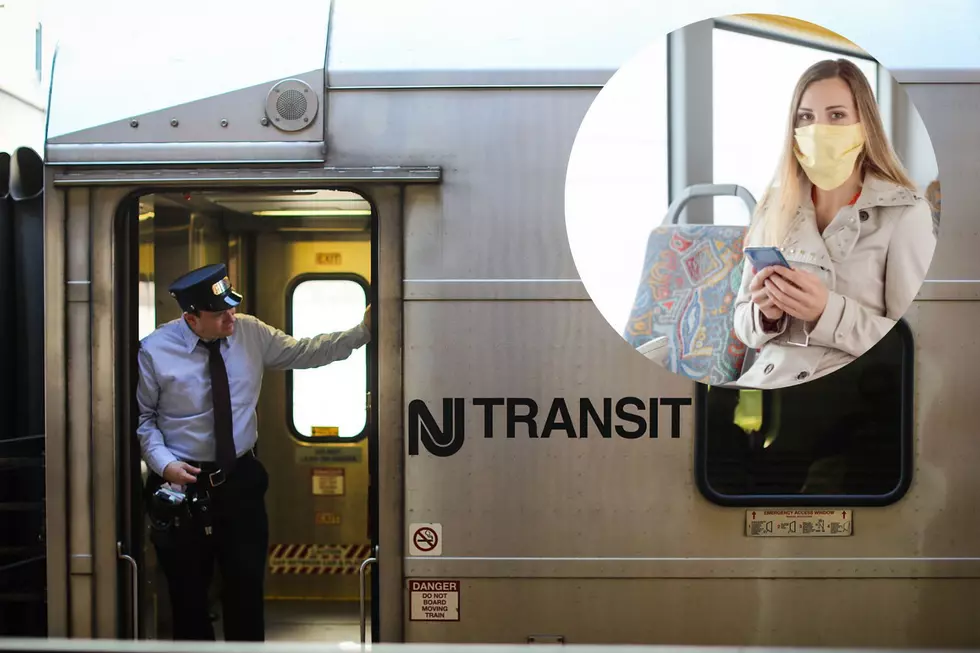
NJ Transit may hear your secrets … but it’s keeping some of its own
There is growing unhappiness and concern among civil liberties advocates and rail rider groups with New Jersey Transit’s use of audio surveillance on its light rail trains.
The agency's interim executive director, Dennis Martin, has said NJ Transit will do whatever it can to deter criminal activity and keep riders safe from possible terror attacks.
But Ed Barocas, legal director of the American Civil Liberties Union of New Jersey, doesn’t buy it.
He said it’s troubling that NJ Transit is doing this kind of surveillance and not answering questions about how the data is being stored, or who has access to it.
“Sometimes we get phone calls from a doctor, from our children or a spouse, where we look for a private area of the car so we can have a place where we do expect to be private,” he said. “At that point we don’t expect that the government is listening in to everything that we’re saying.”
He stressed a major concern is the fact that NJ Transit is doing this essentially in secret. It has disclosed that the recording is happening — but now how it's managed or overseen.
“They have not disclosed what their policies are. We don’t know what are they doing with these tapes, where are they storing them, who has access to them, how long are they keeping them, how are they insuring against unauthorized access, insuring against being hacked into, for the conversations of a million riders a day,” Barocas said.
He stressed it’s one thing to say a video recording can show evidence of crimes that occur — but said the idea that you have audio recordings that you hope will solve future crime doesn’t make sense.
He also said he sincerely hopes “we’re not spending our tax dollars on having New Jersey Transit officials listening through every conversation of the million people who ride New Jersey Transit.”
Barocas said it would be crazy to suppose NJ Transit is actually listening to tapes of millions of conversations a week that people have on NJ Transit trains, “so the question is what are they doing with them, and who has access to them, and we don’t know any of this.”
John Paff, a transparency activist and chairman of the New Jersey Libertarian Party’s Open Government Advocacy Project, said the NJ Transit surveillance raises a lot of questions and seems to be another step in a frightening process.
He pointed out several years ago video recordings of people’s comings and goings in public was considered controversial — a Big Brother sort of thing — but “we’ve somehow gotten used to that and society generally accepts it. Also license plate readers were considered controversial, but there is a gaining acceptance of that as well.”
He said when we hear about NJ Transit surveillance, it seems like this too will become routine and accepted, and “I’m wondering where does this all lead, when do we ever get to a point where some level of surveillance, some surveillance technique becomes so invasive where people will say 'No, we will not accept this.' Or are we always willing to sacrifice any level of privacy in exchange for perceived security?”
Paff added what’s most frightening is people’s acceptance of “higher levels of intrusion into our conversations, our comings and goings. There’s something that’s uncomfortable, and people should feel uncomfortable when there is this level of information being catalogued on people. I don’t like it and I think a lot of people agree it’s very intrusive.”
Barocas said the bottom line is, to him, audio taping is inappropriate.
“They should remove that. They should turn that off," he said. "Secondly, if they are going to activate video or audio taping, we need to see what are their policies, how are they maintaining it, and how are they protecting this information. When are they going to destroy this information, or are they just creating a massive database?”
When asked to comment on concerns about the surveillance, NJ Transit only issued a written statement:
“We have seen too many instances of terrorism at mass transit facilities around the world, with the latest in Brussels. It is our responsibility and our duty to utilize today’s current technology to deter the criminal activity, while also being mindful of law abiding citizens’ right to privacy.”
More From New Jersey 101.5 FM









